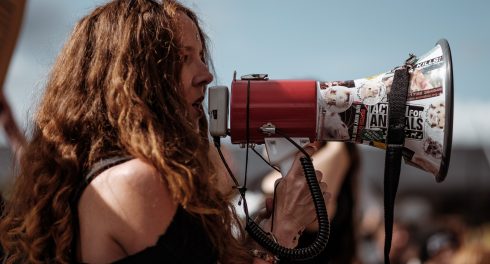
Photo by Albert Hyseni on Unsplash
Read the Spanish version here
Colombia has advanced significantly in the publication of data on the use of resources from extractive activities. The country just went through a major reform in the policies that guide decision-making, implementation, and oversight of the use of these resources. Against this backdrop, there is a vibrant community of civil society organizations and social innovators working on using data to improve transparency, accountability, and participation in the extractives sector and create economic recovery opportunities from the COVID 19 pandemic. This is creating opportunities to support the work of these local innovators while also generating evidence about what it takes to effectively use data to generate positive impacts on people’s lives. In partnership with the International Financial Corporation (IFC) and BHP Foundation, we launched a call for project ideas that can advance the use of extractives data to improve citizen engagement, accountability, and development results.
Why run this Call for Ideas?
It is a direct response to new findings on data uptake. Publishing data does not automatically lead to people using it to address corruption and development problems that are relevant in their contexts. Despite recent efforts focused on the extractive sector – such as subnational research on the use of EITI data and reflections on the political economy of extractives transparency, there are still many gaps and open questions on effective data use and how it can lead to a greater impact on development.
In the past two years, The Transparency and Accountability Initiative and Global Integrity have been implementing the data for accountability initiative. In this initiative, we are working with country-level partners to generate evidence about the roots of this challenge and assess the effectiveness of different approaches to using data for accountability (for more on the initiative, see here). We have also been collaborating with the IFC to improve our understanding of the challenges that limit the use of extractives data in the country and promote local innovation in tackling those challenges (see below).
As part of this collaboration, IFC’s Disclosure to Development Program launched the Mining Royalties Data in Colombia: Data at Work for the Voice of the People report (and summary). It provides practical recommendations for governments, industry, and civil society to improve the disclosure and use practices of mining royalty data to provide citizens with complete, relevant, and actionable information.
It also explores how the extractives system operates and the mismatch between the data made available and the data that different stakeholders need at the national and sub-national levels. Recommendations include:
– using innovative strategies for citizen engagement such as participatory data collection and monitoring and using community theater, comics;
– coordinating and standardizing existing initiatives to build the capacity of local authorities; and
– strengthening the capacity of infomediaries at the national and subnational level, building on the work of different journalistic initiatives, such as Agenda Propia, Cuestion Publica, Consejo de Redacción, and La Silla Vacia, and data entrepreneurs like Datasketch.
Our ongoing work with local partners has enabled us to see the potential of implementing these recommendations and supporting local organizations trying to test new approaches. We have been supporting Comunidad de Juristas Akubadaura and Transparencia por Colombia in their efforts to improve the use of data in the extractives sector to address problems faced by indigenous communities and strengthen citizen monitoring at the subnational level (find out more on these projects here and here).
Based on the results from the research and the work that our partners have been doing in the country, the call for project ideas is focused on the following themes:
– Improving transparency on mining royalties by promoting local voices and building trust, strengthening data use capacities of local and national infomediaries, and/or developing business models, tools, or approaches to reduce information asymmetries among communities, authorities, and companies.
– Advancing gender inclusion in the extractive sector by improving the collection of gender-sensitive data, improving access to information useful for women, and/or tools, apps, or businesses that can overcome challenges to gender inclusion.
– Using extractives data to improve response and recovery to COVID-19 by providing communities with accurate information – including fighting misinformation – on the effects of COVID-19 and mitigation strategies, improving accountability about the use of extractive resources in response to the pandemic, and/ or entrepreneurial ideas to take advantage of economic opportunities that come with changes to the operational practices of mining companies (e.g., digital services, safeguards, etc.), and the emergence of new economic opportunities at the local level.
– Achieving greater ethnic inclusion by making data access, collection, and use easier for ethnic groups, promoting communication strategies that are responsive to their interests and needs, and developing tools, approaches, or business models that can strengthen these communities’ participation in decision-making processes.
The call is open to any organization based in Colombia (see more on requirements here). Selected ideas will receive support between USD 25,000 and 100,000. Take advantage of this opportunity and send us your ideas by March 31st. Also, please share this call with ideas with your networks and organizations that you believe can make a difference in improving the use of resources from the extractive sector to improve Colombia’s national and local development.


